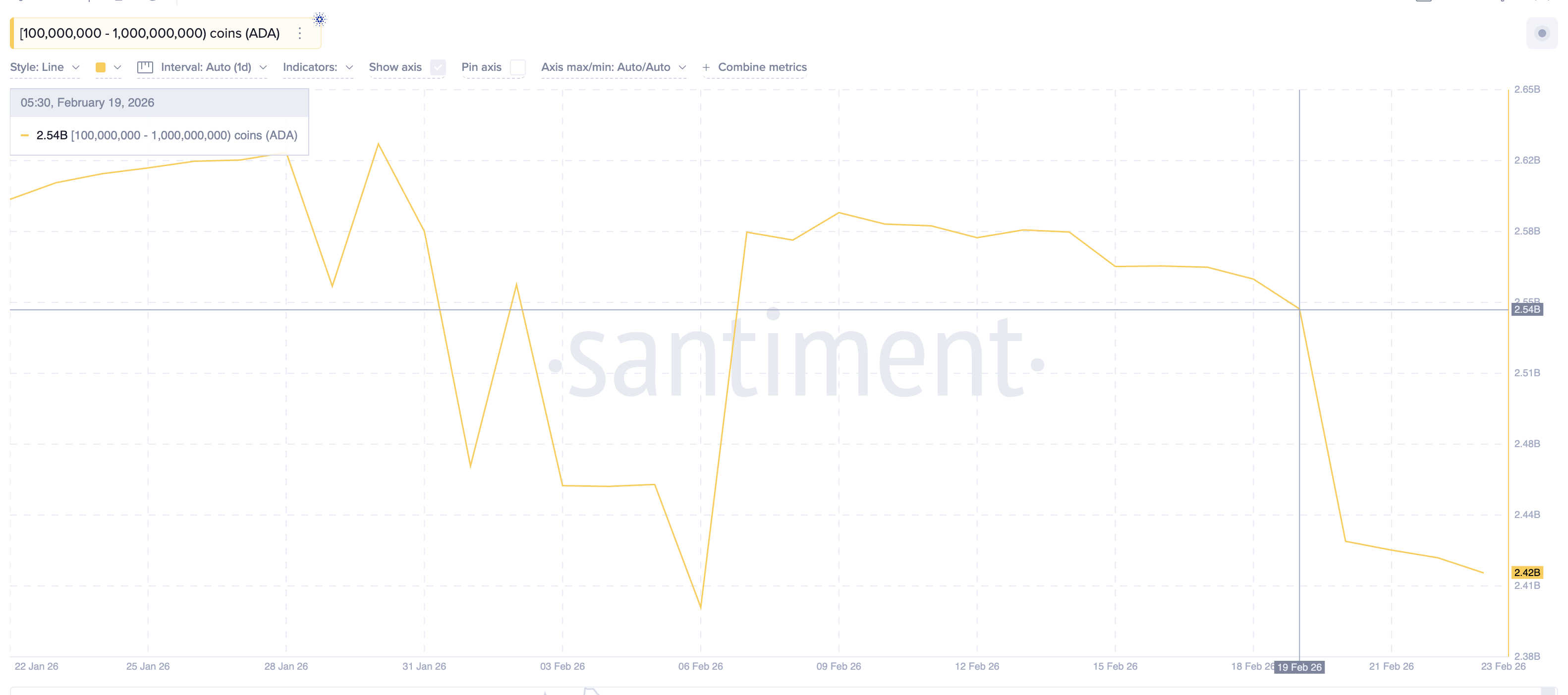Core’s Rev+ Program Could Offer Sustainable Revenue Model for Stablecoin Issuers and Developers
The Core Foundation is pioneering a novel revenue-sharing model, Rev+, designed to transform funding mechanisms for stablecoin issuers and Web3 developers by directly rewarding user-generated value. This initiative aims to establish a sustainable income stream from blockchain transaction fees, red

-
The Core Foundation is pioneering a novel revenue-sharing model, Rev+, designed to transform funding mechanisms for stablecoin issuers and Web3 developers by directly rewarding user-generated value.
-
This initiative aims to establish a sustainable income stream from blockchain transaction fees, reducing the industry’s reliance on traditional cryptocurrency launches for project financing.
-
Hong Sun, institutional lead at the Core Foundation, emphasizes that Rev+ will realign incentives so that stablecoin issuers and developers benefit financially from transaction activities involving their tokens.
Core Foundation’s Rev+ introduces a groundbreaking revenue-sharing model, enabling stablecoin issuers and developers to earn from transaction fees and fostering sustainable Web3 growth.
Core Foundation’s Rev+ Program: Revolutionizing Revenue Generation for Stablecoin Issuers and Developers
The Core Foundation has unveiled Rev+, a protocol-level program that marks a significant shift in how blockchain projects generate revenue. By leveraging the Core blockchain’s unique infrastructure—an Ethereum Virtual Machine (EVM)-compatible Bitcoin staking protocol—Rev+ enables projects to earn recurring income from user-generated gas fees. This mechanism rewards stablecoin issuers and decentralized autonomous organizations (DAOs) based on their contribution to the network’s transactional activity.
Rev+ operates through two primary channels: direct payouts following transactions and a revenue-sharing pool. The pool’s distribution is calculated by assessing multiple metrics, including total transaction volume, new unique addresses, notional value, and cumulative transaction fees. This multi-faceted approach ensures that revenue allocation reflects actual network engagement and value creation, fostering a more equitable economic model within the Web3 ecosystem.
Mechanics of Rev+: Aligning Incentives with Sustainable Blockchain Growth
Rev+ addresses a longstanding challenge in the crypto space: the lack of sustainable revenue streams for developers and stablecoin issuers. Historically, projects have depended heavily on initial coin offerings (ICOs) or token launches to secure funding, which can be volatile and unsustainable. By contrast, Rev+ incentivizes ongoing network participation and value generation.
Rich Rines, an early contributor to Core DAO, highlights that while the initial revenue pool may be modest, the model is designed to scale with network growth. This usage-based monetization framework encourages developers to build applications that drive real user engagement, aligning economic rewards with actual utility rather than speculative token appreciation.
Industry-Wide Implications: Moving Towards Collaborative Economic Incentives in Web3
The introduction of Rev+ resonates with broader calls within the crypto industry for more cooperative economic structures. Charles Hoskinson, founder of Cardano, has critiqued the prevailing adversarial tokenomics that pit projects against one another in a zero-sum market environment. At Paris Blockchain Week 2025, Hoskinson advocated for tokenomics that foster cooperative equilibria, enabling the entire ecosystem to thrive collectively.
Rev+ exemplifies this shift by promoting a revenue-sharing model that benefits multiple stakeholders across the network, rather than concentrating rewards within isolated projects. This approach could mitigate the cyclical capital rotation common in decentralized finance (DeFi), where gains in one token often correspond to losses in another, thereby limiting overall industry expansion.
Future Outlook: Enhancing Developer Incentives and User Value in Web3
As Web3 continues to evolve, sustainable funding models like Rev+ are poised to play a critical role in shaping the ecosystem’s maturity. By directly linking revenue to transactional activity, the Core Foundation’s initiative encourages developers to prioritize user-centric applications that generate tangible value. This could lead to increased innovation, higher-quality projects, and more resilient blockchain networks.
Moreover, the model’s emphasis on transparency and equitable revenue distribution aligns with regulatory expectations and industry best practices, potentially easing compliance challenges while fostering trust among users and investors alike.
Conclusion
Core Foundation’s Rev+ program represents a pioneering step towards sustainable and collaborative economic incentives in the Web3 space. By enabling stablecoin issuers and developers to earn revenue from transaction fees, it offers a viable alternative to traditional fundraising methods, promoting long-term ecosystem growth. This model not only addresses critical funding challenges but also aligns stakeholder interests, paving the way for a more cooperative and resilient blockchain industry.
Don't forget to enable notifications for our Twitter account and Telegram channel to stay informed about the latest cryptocurrency news.
Delegate Your Voting Power to FEED DRep in Cardano Governance.
DRep ID: drep12ukt4ctzmtf6l5rj76cddgf3dvuy0lfz7uky08jfvgr9ugaapz4 | We are driven to register as a DRep by our deep dedication to the Cardano ecosystem and our aspiration to take an active role in its development, ensuring that its progress stays true to the principles of decentralization, security, and community empowerment.DELEGATE VOTING POWER!







